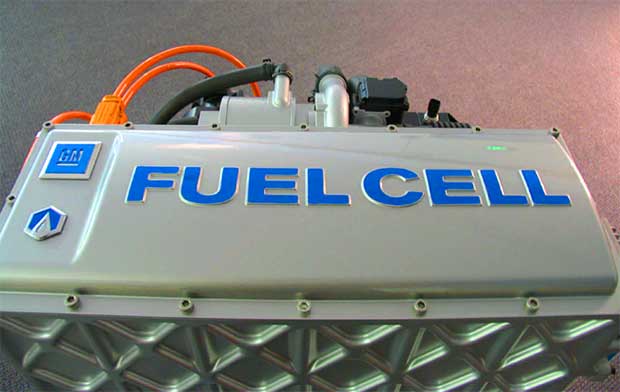
For years, hydrogen fuel has been viewed through two prisms including the ability to give us a potential solution for long-term ethical energy, and the mass challenges that we face in turning hydrogen into an affordable form of fuel in the long-term. Along these lines, there has been a push for a development of non-platinum catalysts that could help to make power generation not only cheaper, but more likely to last for the long-term.
Now I have created over 150 blog posts about hydrogen fuel cells over the past decade and a half that I’ve been writing this blog, so I never get tired of writing on this subject! One of my favorite subjects, of course, is platinum-free fuel cells to drive down costs and increase durability.
So, to continue, Washington University in St. Louis has been working alongside expert Vijay Ramani in a bid to come up with a solution to the this issue. As an engineering specialist from the McKelvey School of Engineering, Ramani is seen as an essential part of the solution to platinum-free fuel cell development.
The process has been a tine consuming one, with the need for a platinum catalyst an essential part of hydrogen-oxygen polymer electrolyte membrane fuel cells, or PEMFCs. They require a platinum catalyst, but this can be expensive to make and also the lifespan can be quite poor. Together, the research team has found a platinum-group-metal free solution.
The next step in hydrogen fuel cell affordability?
Having worked tirelessly on a solution, they have developed a catalyst made with a mixture of cobalt, nitrogen, and carbon. This is designed to give the same kind of performance that is expected from a platinum option, while they also found that it was not only remarkably powerful, but it was as much as 4x as stable as the best PGM-free iron-nitrogen-carbon catalysts that had been tried in the past.
The testing was carried out both by Ramani and Cheng He, a doctoral student in his research group. They developed the high-performance membrane-electrode assemblies and watched performance to determine if it was capable of meeting demand. The results were extremely promising, with the development showing that it was able to exhibit the highest activity of all of the non-iron-based PGM-free catalysts.
So, while we might still be in the early stages of such a development, it is an immensely promising move in the right direction. In an industry that is in such need of good news and positive feelgood factor decisions (especially during Covid-19), this discovery has been very important indeed for the long-term future of the industry.
Citation
https://source.wustl.edu/2020/12/new-catalyst-resolves-hydrogen-fuel-cell-cost-longevity-issues/